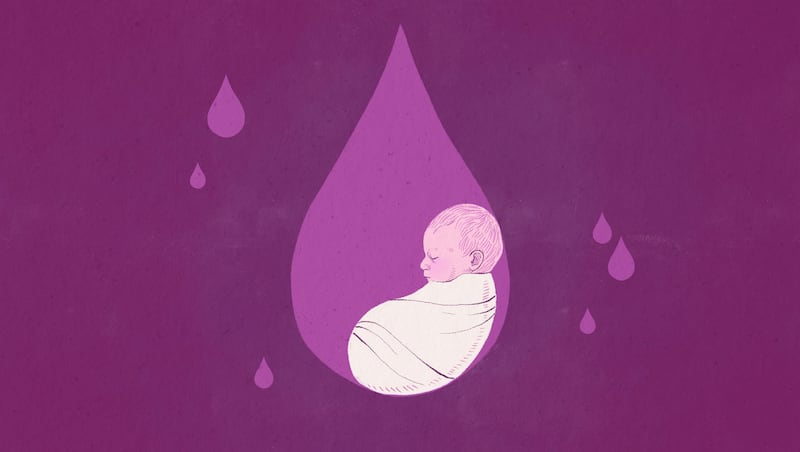Perspective: Do babies belong with drug-addicted mothers? New Mexico has a change of heart

"The 4-month-old was the last straw." That's what Maralyn Beck, executive director of theChild First New Mexico Network, told me, explaining why the state has finally announced a radical change in its policies regarding drug-exposed infants.
As of July 7, babies born substance-exposed will now automatically be taken into custody by the state for 72 hours before they are discharged from the hospital. If the child is sent home with their parents, the state will check in regularly, including a visit within 48 hours and at least twice a month after that.
It was June 5 when deputies from the North Area command of Bernalillo County were dispatched to find the infant (known as C.M. in the legal document) not breathing and unconscious. His mother, Gabriella Muniz, had apparently killed the child while they slept in the same bed. She was under the influence of methamphetamines and fentanyl and charged with "abuse of a child resulting in death."
C.M. had been sent home from the hospital with his mother despite the fact that he had been born exposed to fentanyl and meth, despite the fact that his mother had used both drugs the day before he was born, despite the fact that she abandoned the baby at the hospital and then came back later and, according to the criminal complaint, "saw the baby but did not care for him."
New Mexico's Children, Youth and Families Department knew about the mother's history of drug use, about the circumstances when the baby was born and that the mother and her boyfriend were regularly using drugs after she went home with C.M. And yet the department, acting in full accordance with New Mexico law at the time, left this child at home.
It was 2019 when New Mexico Gov. Michelle Lujan Grisham took office and announced that the state would be taking a "public health" approach to child welfare. In response to the 2016 federal Comprehensive Addiction and Recovery Act (CARA), which required states to offer services to newborns who have been substance-exposed, New Mexico created "plans of safe care" which refer families to voluntary support and treatment for babies and parents.
But it became clear almost immediately that offering onlyvoluntaryservices for kids who were born substance exposed was going to be a big problem. Beck started to get calls from nurses at hospitals around the state, saying, "We don't understand. We're calling our concerns about substance-exposed infants into CYFD. And they're sending these babies to go home." They would tell her these babies are "walking out the door with homeless drug addicts. When we tell (CYFD) our significant safety concerns, they're telling us this is the new law."
Around 2021, the media also started covering these "CARA babies" — children who were going home with parents after being born substance-exposed and then dying as a result of incidents of drug-related neglect, including unsafe sleep deaths or ingesting drugs that their parents had left within easy reach.
In 2022, Ricky Renova died at the age of 2 from an overdose. After being born exposed to substances, he was sent home with a mother who was using drugs in the hospital and who already had two other children permanently removed from her custody. A lawsuit filed after Ricky's death alleged: "Knowing that they left Ricky and other children like him born into a legal and regulatory void that they were obligated to fill regarding how to treat and protect drug-exposed infants, CYFD and (the Department of Health) failed to ensure at any time that Ricky was safe in the care of his mother."
Beck estimates (based on her review of local autopsy reports since 2019) that there was at least one dead baby per month who was born substance-exposed. She fears there have been many more, pointing to the case of Brianna Stallings, who fell asleep with her 2-month-old, suffocating her and then burying her body so no one would find out.
Finally, it seems, the public had enough, and there was sufficient pressure on the legislators and the governor to fix things. The legislature passed a bill in February to address the problem, but now the governor has expedited things. "The evidence is, kids belong with their biological parents, right? But it creates conflict when you add fentanyl and alcohol and guns, and you've got a system that's far too risky for us to be fighting to rebut the presumption that they're not safe." So, Lujan Grisham explained, "We're just switching it. 'You're not safe, we're all involved.'"
Of course, there are progressive New Mexico leaders like Sen. Gerald Ortiz y Pino, who say this new approach is just a way "to punish the family by taking kids away from them." But no one who has been paying attention can seriously suggest that Lujan Grisham didn't give the "public health approach" a serious try.
For Beck, the news of this turnaround has brought mixed emotions. She is thrilled that the governor and the legislature have finally seen the error of their ways. But, she adds, "it took so much bloodshed to get us here. It shouldn't have taken this long."

Post a Comment for "Perspective: Do babies belong with drug-addicted mothers? New Mexico has a change of heart"